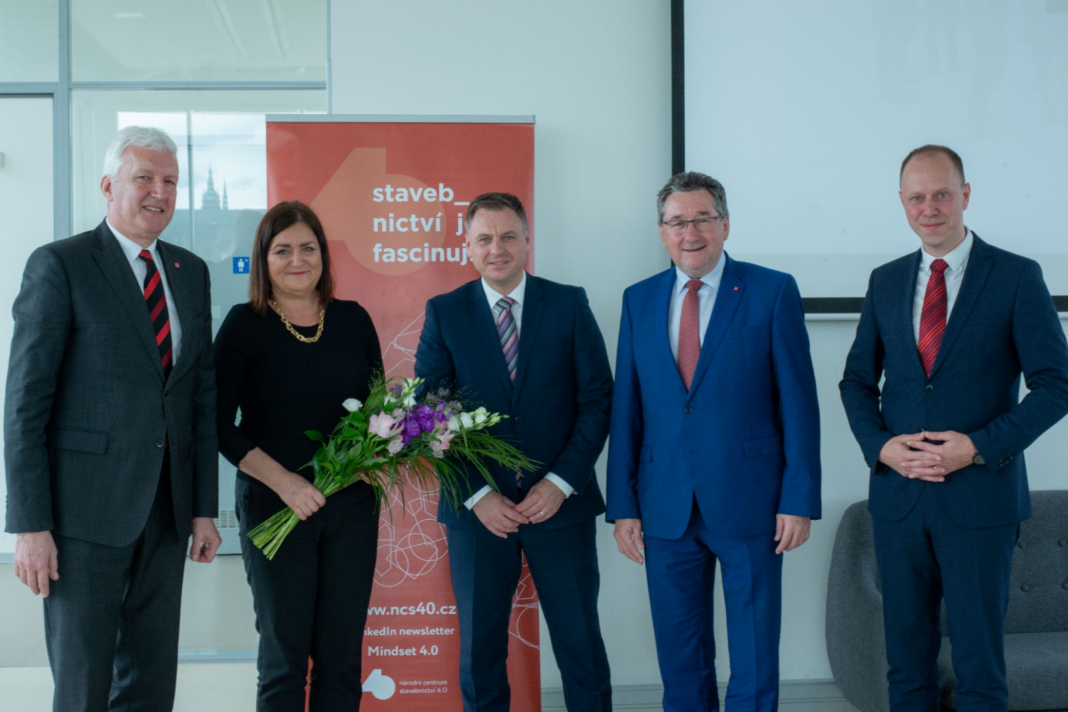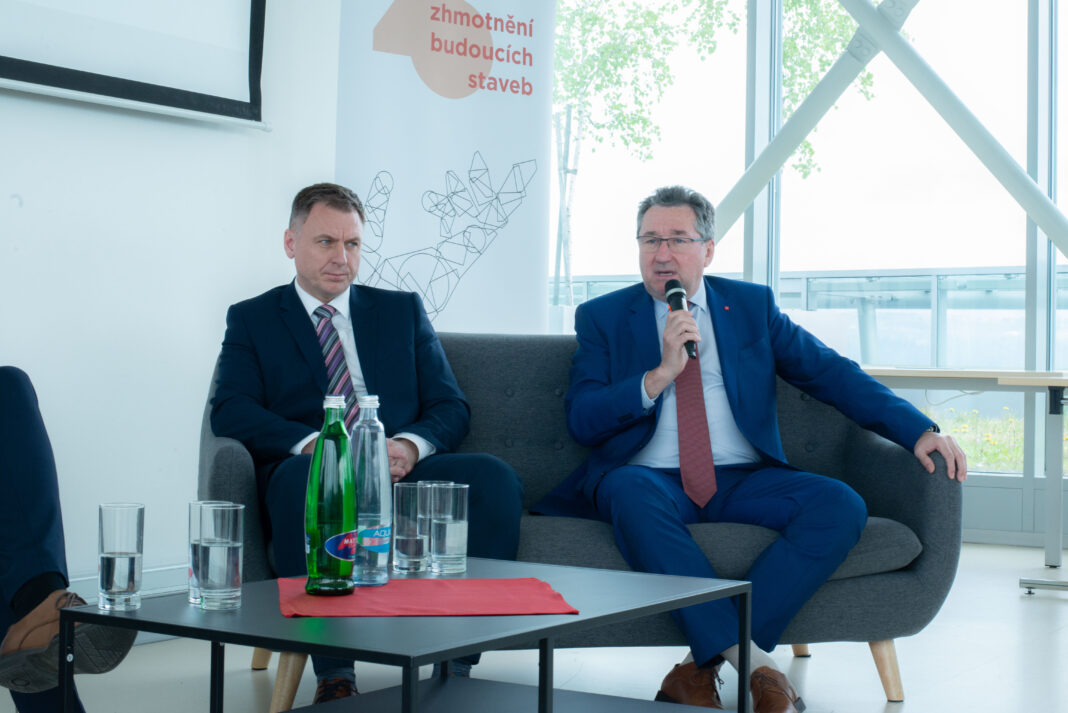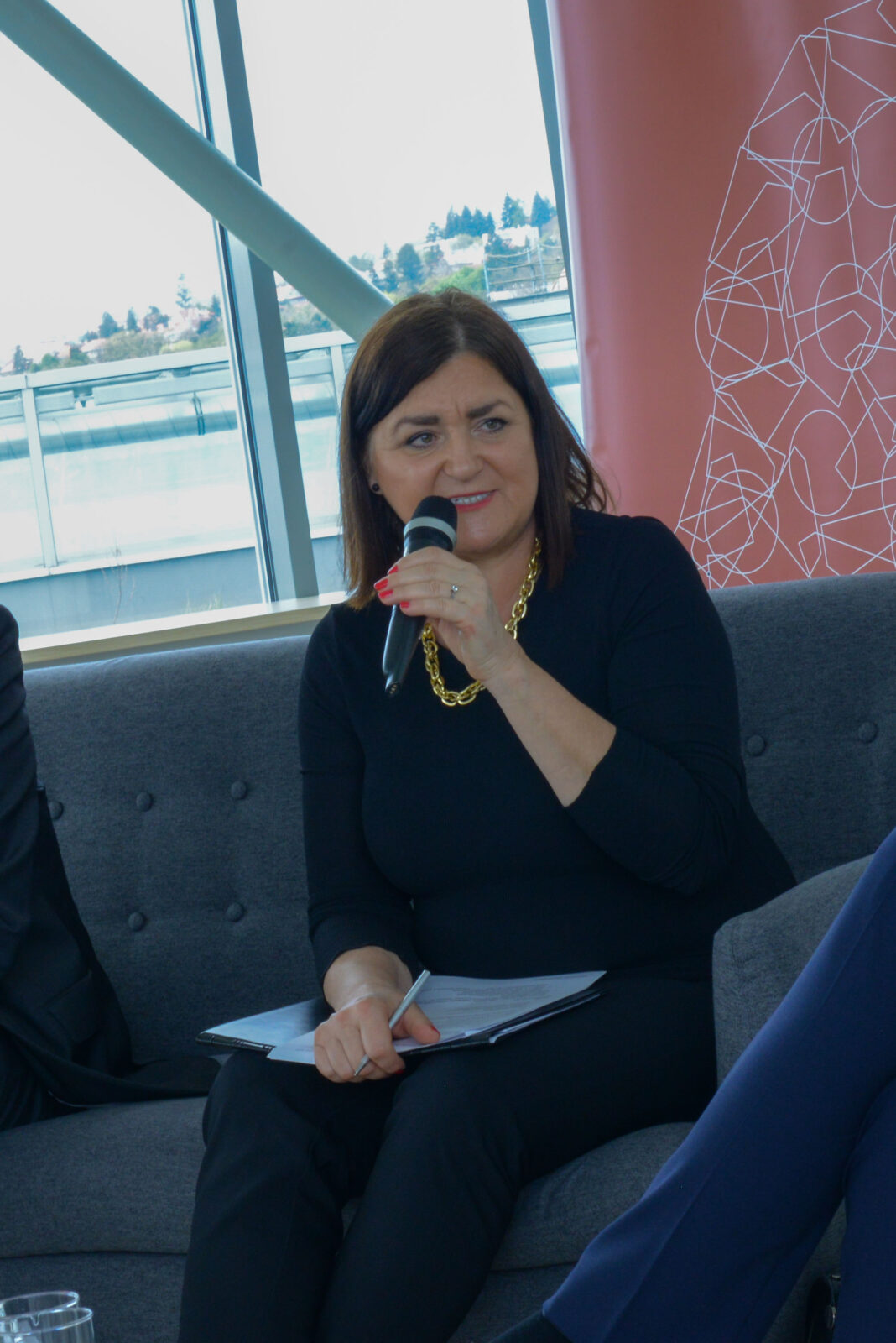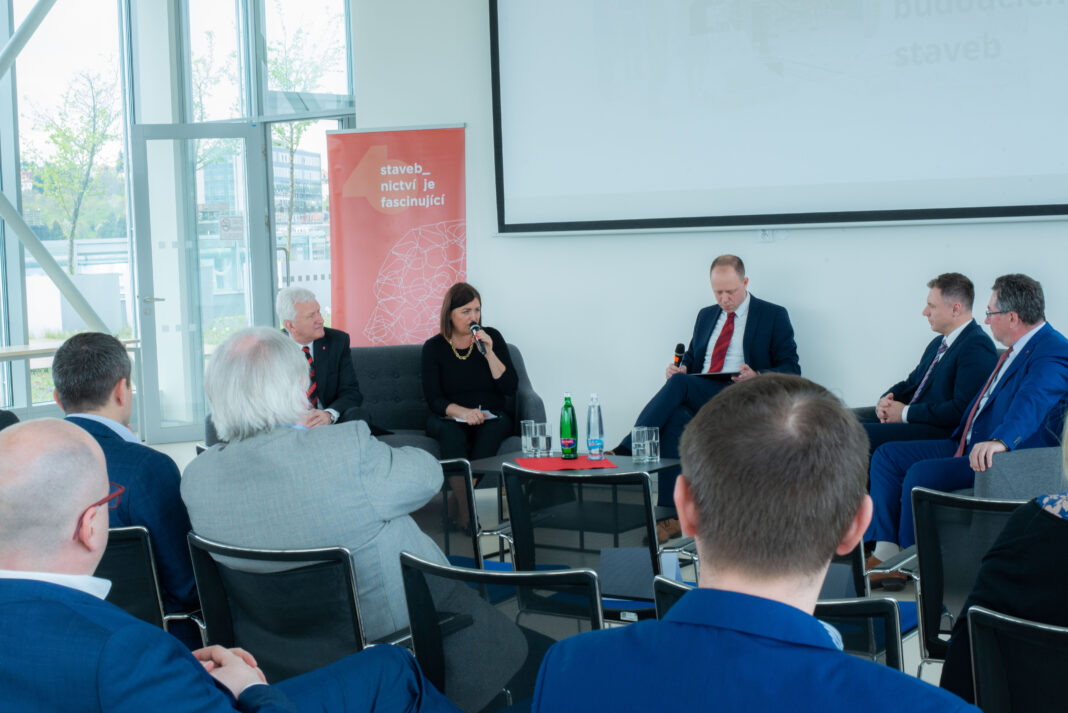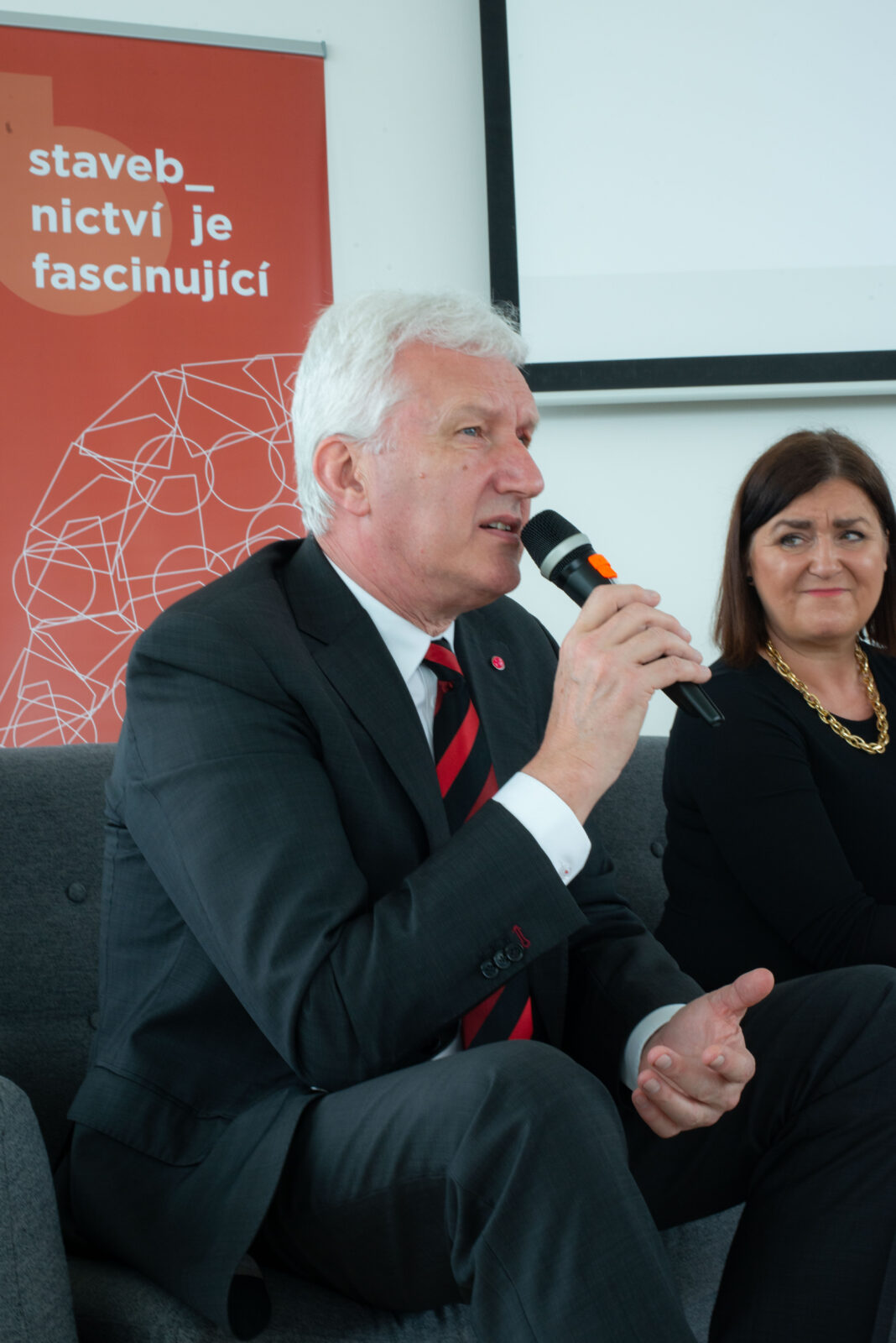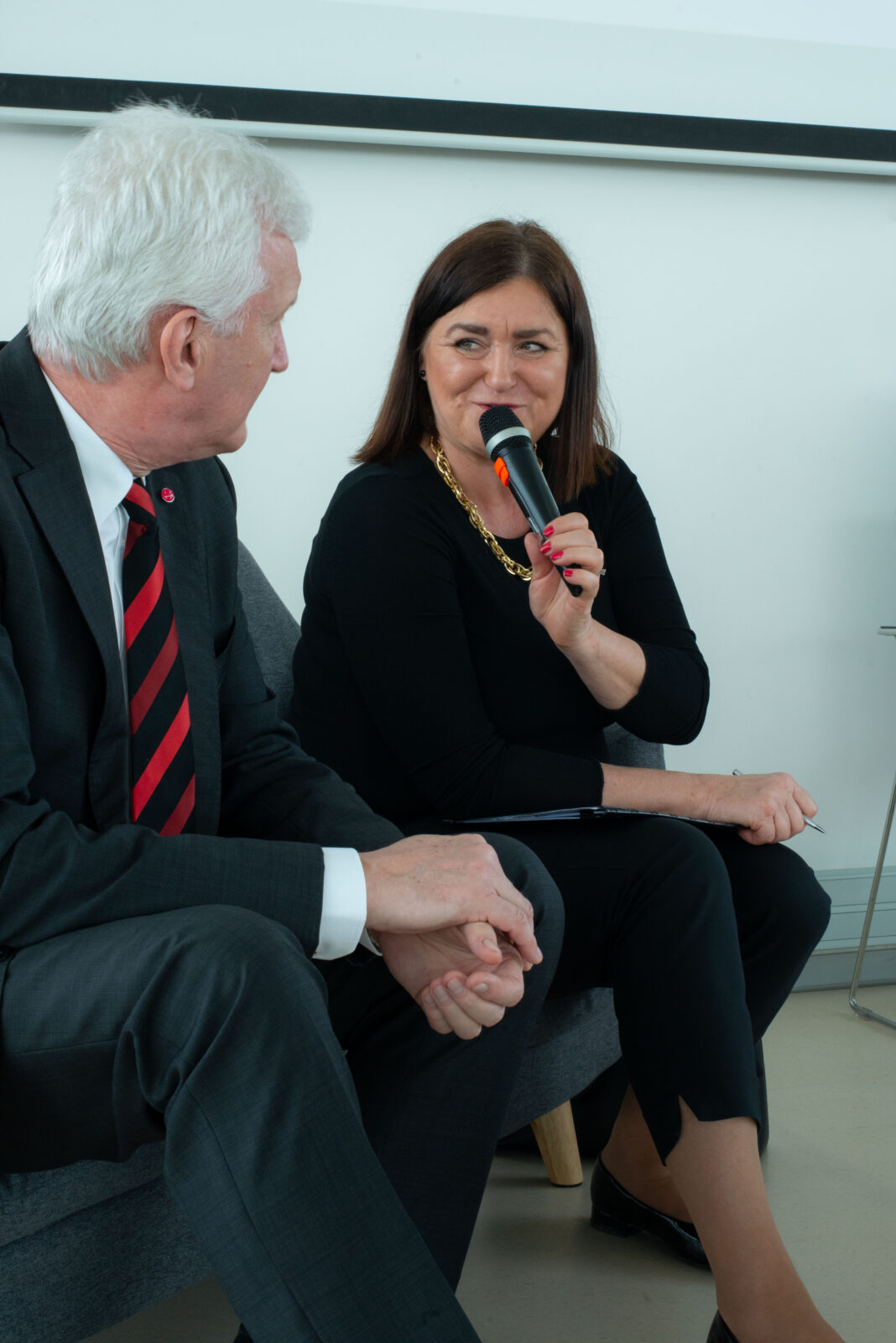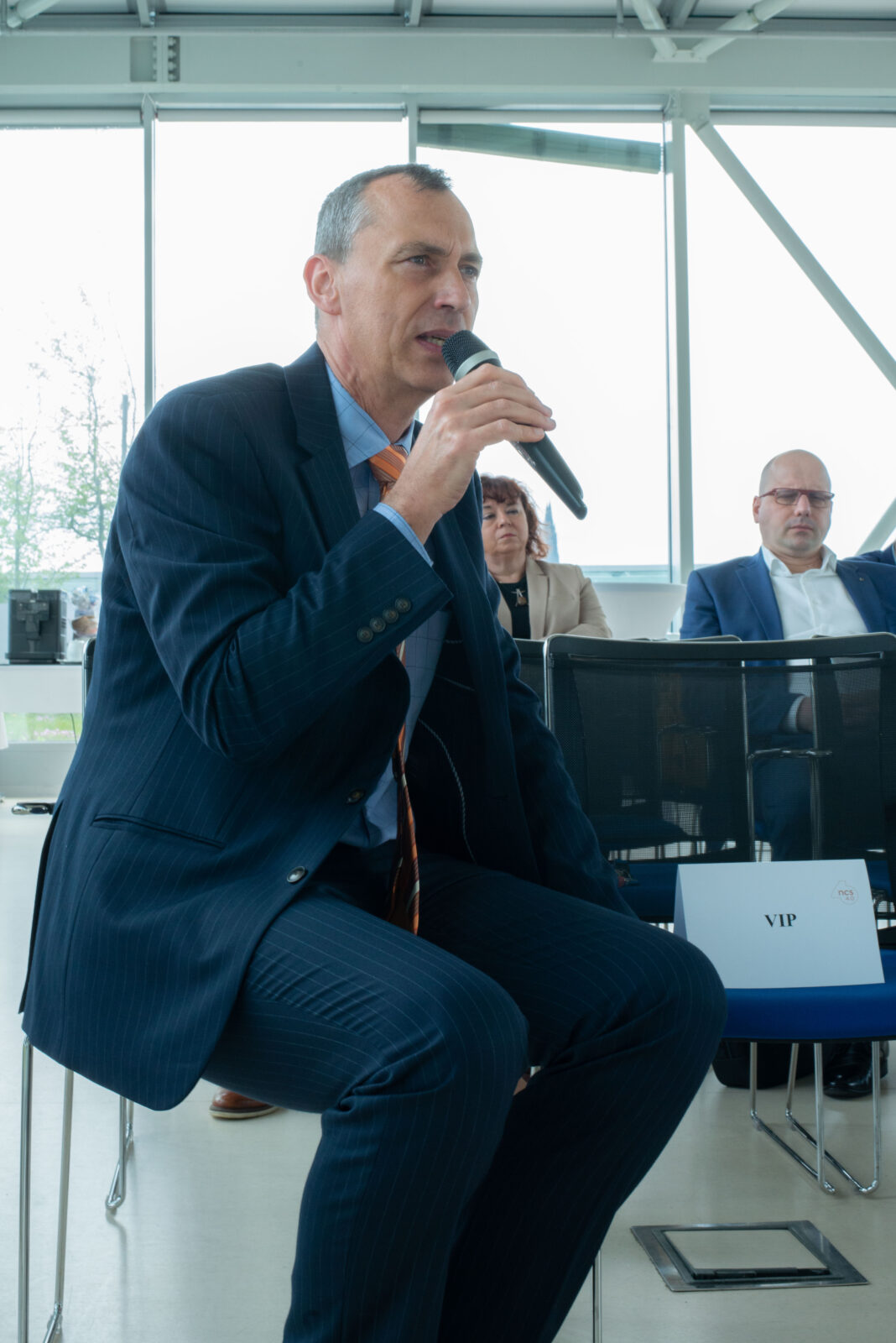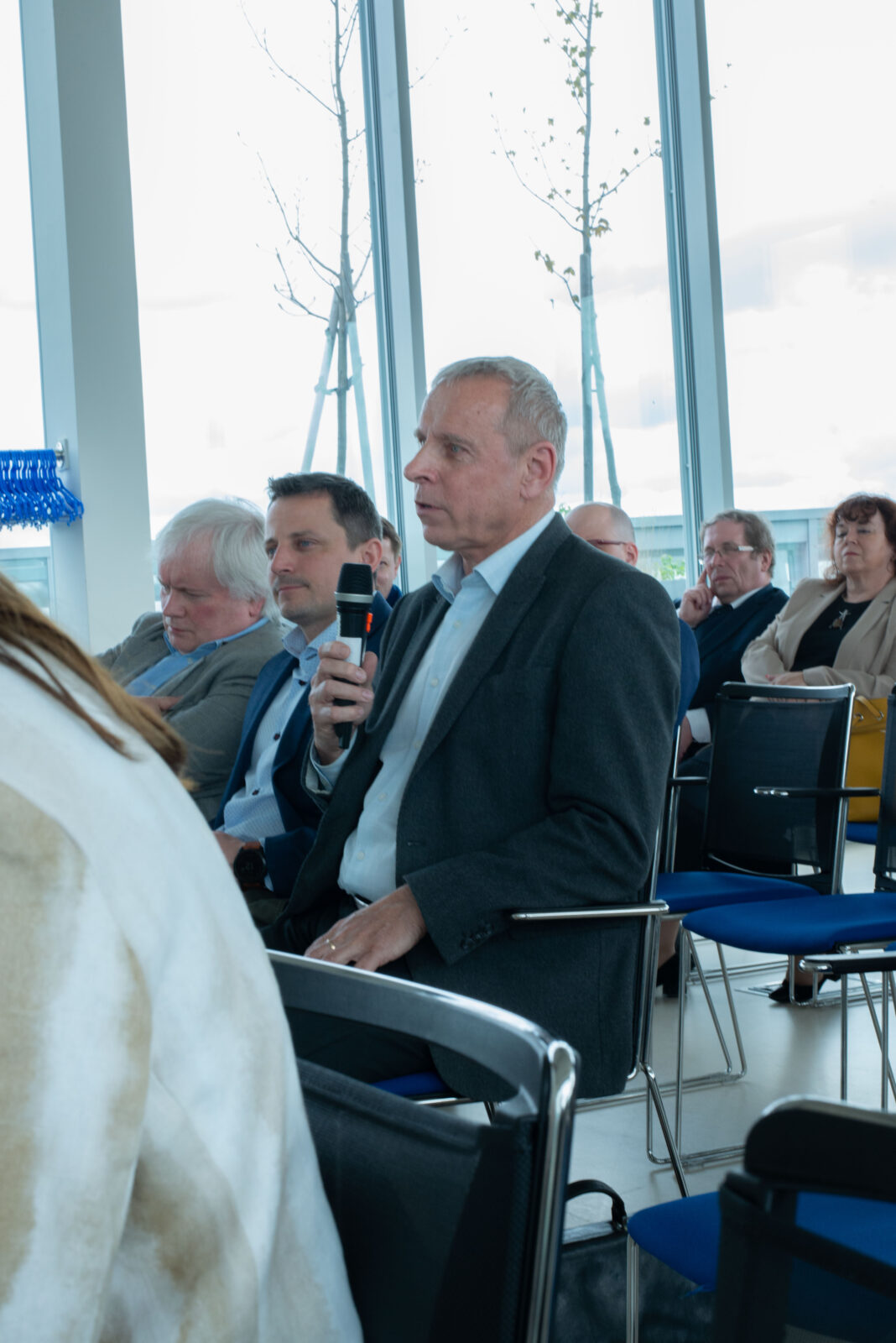Innovations and the use of technologies in the construction industry, which would ensure the development of this field in the area of digitization and automation or industrial doctorates, were the topic of the Construction Forum organized by the National Center for Construction 4.0, which operates at the Czech Institute of Informatics, Robotics and Cybernetics of CTU. Helena Langšádlová, the Minister for Science, Research and Innovation, opened the panel discussion with representatives of construction companies and the academy that the center associates.
The construction field is an important pillar of the Czech economy, yet it still does not make much use of the possibilities offered by current digital technologies. This industry could benefit from innovations not only to solve the labour shortage fundamentally, but they could help to better, more efficiently and sustainably manage the resources that the construction industry uses and respond flexibly to changes. These and other current topics were discussed by an expert panel, whose guests included, in addition to Minister Helena Langšádlová, the Dean of the Faculty of Civil Engineering at the BUT in Brno, Rostislav Drochytka, the Chairman of the Board of Directors of TACR Petr Konvalinka and Hochtief Supervisory Board Member Pavel Růžička.
Connecting practice and research not only in the construction industry could also be helped by so-called industrial doctorates. Helena Langšádlová, the Minister for Science, Research and Innovation, has been advocating for their expansion in the Czech Republic for a long time. „It is very important that we value the results of our scientists more and that there is a greater connection between research organizations and those who will use these results. Industrial doctorates will also contribute to this. They strengthen the transfer culture, which is still very low in the Czech Republic. If we succeed in strengthening it, it will lead to significant technological changes and, thanks to that, to building an economy with higher added value, which is our goal.“
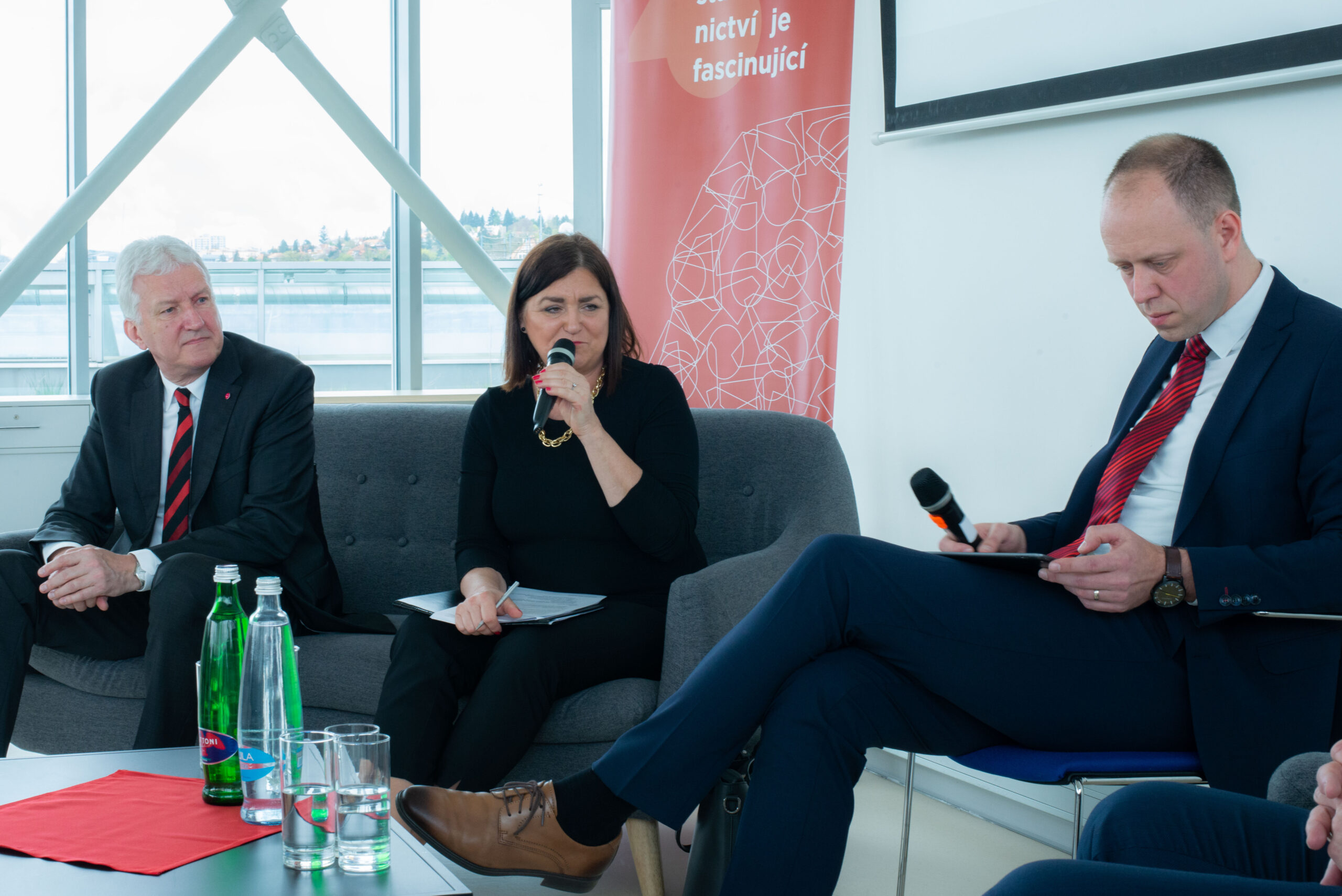
Industrial doctorates are also one of the priorities of the Czech Institute of Informatics, Robotics and Cybernetics. „In cooperation with foreign universities, we want to create our own doctoral study program, which would include industrial doctorates. A direct connection to practice, innovative potential and financial benefits – this is how we envision a modernly designed study program that has a lot to offer to the academy, companies and especially students,“ Ondřej Velek, Director of the Czech Institute of Informatics, Robotics and Cybernetics, explains the novelty in the Czech academic sphere.
Putting innovations into practice is one of the goals of the National Center for Construction 4.0, which connects partners from the corporate sector and other experts from academic field. Although the construction industry is a discipline where every building is individual and almost every element is different, which fundamentally differs from serial production of the automotive type, even in such a complex field it is possible to look for repeatability and focus the tools offered by Industry 4.0 on this. „One of the challenges are the construction robots,“ says Radoslav Sovják, Director of the National Center for Construction 4.0. „Of course, such robots already exist, and their use is not and will probably never be the same as in case of the automotive production line. Nevertheless, the transformation of the construction industry would significantly help the entire industry and bring in young people, who are often discouraged by the current image of the construction industry, which relies on cheap labor. It is extremely important that the professional community agrees on the direction we will go forward as a field, and not as individual groups. Energy and therefore investments are terribly fragmented in the Czech construction industry.“
The role of sustainability in the construction industry was emphasized by Rostislav Drochytka, Dean of the Faculty of Civil Engineering at Brno University of Technology: „The reduction of energy intensity and the related reduction of the carbon footprint are among the areas where the impact of oriented research is most significant. This can be achieved either directly at the producers, but also indirectly by using secondary raw materials. Knowing our carbon footprint will lead to an active reduction in the future.“
The need for active cooperation is also confirmed by Pavel Růžička from the Hochtief company: „Scientific research projects make it possible to set up meaningful cooperation between scientific institutions and the private sector, which often has specific development requirements but does not have the necessary capacities.“
Photo: Patrick Spiteri


